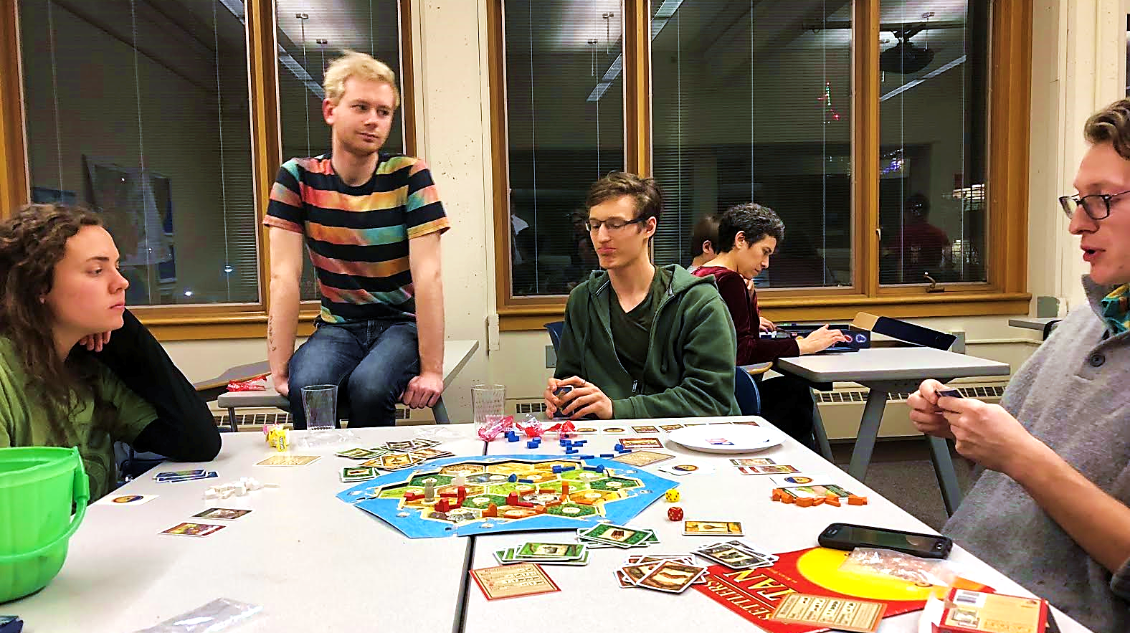
Student Resources

The Mathematics Department provides activities and information for any student of mathematics, from those taking a single course, to those majoring in the discipline. Here, you'll find everything ranging from the fun, for example the Math Club, to the scholastic, such as Bannan Scholarships, to the professional: Alumni Connections. This group is composed of students and professors and open to all. Its activities include movies and pizza, hikes, and ping-pong, to name a few. New members and inquiries are always welcome! and various awards are available to eligible majors in the College of Science and Engineering. Students are encouraged to learn more and apply, if eligible. For graduating seniors, students seeking out internships, or those investigating career choices, our can prove invaluable. They include engineers and managers, as well as graduate students around the country.
Below are some additional resources for math students:
- Learning Assistance Programs
Learning Assistance Programs provide peer tutoring, facilitated study groups, and learning strategy development through scheduled workshops and individual meetings with a learning specialist. For a full list of their resources please visit https://www.seattleu.edu/learning-assistance. - Study Hall
Learning Assistance Programs will be offering two hours of study hall starting week 4 each week on
MONDAY: 1pm-2pm (Pacific)
THURSDAY: 10am-11am (Pacific)
Study hall is a new service provided by Learning Assistance Programs. Any students in math classes can come and sit with Sal and work on school work. Sal will just been sitting in a zoom room for the whole hour, playing lofi beats to study/relax to, and will answer any math questions your students bring up. The meeting ID is 966 1656 0901. - Tutoring
Weekly Tutoring is a free service offered by Seattle U. The sign-up for both tutoring and drop-in tutoring is at the LAP website at https://www.seattleu.edu/learning-assistance/ and has very clear steps for all sign ups. In order to be able to receive weekly tutoring, students must do a “tutoring needs assessment.” This assessment gives Learning Assistance Programs information about how to best pair tutors and students. You can find out more about how to sign up for tutoring at https://www.seattleu.edu/learning-assistance/tutoring-services/weekly-tutoring. - Drop-in Tutoring
Sal Calatola-Young will be holding drop-in tutoring starting week 4. He will be offering around 8 hours a week of 30 minute long drop-in appointment times which are first come first serve, and the sign up and times of the drop-in’s can be found here, https://www.seattleu.edu/learning-assistance/tutoring-services/drop-in-tutoring/. Sal can go over specific questions that you need help with, or can try to help with concepts you’re struggling with. - Oral Reviews
Some lower division courses will have voluntary, ungraded oral reviews before each exam. Oral reviews provided a unique and structured opportunity to prepare for the exams in a small-group setting. They are normally conducted by study group facilitators. Check your syllabus/canvas page to see if your class has study group. - Study Groups
Some lower division math classes have weekly study groups. For these classes 90-minute study groups are be held weekly. The sessions are led by a trained students that are comfortable with the material of the class. Check your syllabus/canvas page to see if your class has study groups. - Counseling & Psychological Services
Due to the Coronavirus/COVID-19 pandemic, Counseling and Psychological Services is providing remote teletherapy and referral services to enrolled students during fall quarter. Counseling and Psychological Services can assist SU students with identifying resources and services that best fit each student’s unique circumstance. You can find out more about all of the resources that Counseling and Psychological Services provides at https://www.seattleu.edu/caps/services. - Disability Services
Any student that has, or thinks they may have, a disability (including an invisible disability such as a learning disability, a chronic health problem, or a mental health condition) that interferes with their performance as a student in this class, is encouraged to arrange support services and/or accommodations through Disabilities Services staff. Disability-based adjustments to course expectations can be arranged only through this process. You can find out more about this process as well as services provided at https://www.seattleu.edu/disability-services/getting-started.
Advising is here for you from the beginning & beyond! Whether you are currently pursuing a major in the College of Science & Engineering, a Seattle University student exploring your options, or a prospective student, they're always here to assist you!
The College of Science & Engineering offers several scholarship opportunities to incoming & current students. Many scholarships are offered in addition to financial aid.